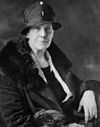| << | May 1905 | >> | ||||
|---|---|---|---|---|---|---|
| Su | Mo | Tu | We | Th | Fr | Sa |
| 1 | 2 | 3 | 4 | 5 | 6 | |
| 7 | 8 | 9 | 10 | 11 | 12 | 13 |
| 14 | 15 | 16 | 17 | 18 | 19 | 20 |
| 21 | 22 | 23 | 24 | 25 | 26 | 27 |
| 28 | 29 | 30 | 31 | |||



The following events occurred in May 1905:
Contents
- May 1, 1905 (Monday)
- May 2, 1905 (Tuesday)
- May 3, 1905 (Wednesday)
- May 4, 1905 (Thursday)
- May 5, 1905 (Friday)
- May 6, 1905 (Saturday)
- May 7, 1905 (Sunday)
- May 8, 1905 (Monday)
- May 9, 1905 (Tuesday)
- May 10, 1905 (Wednesday)
- May 11, 1905 (Thursday)
- May 12, 1905 (Friday)
- May 13, 1905 (Saturday)
- May 14, 1905 (Sunday)
- May 15, 1905 (Monday)
- May 16, 1905 (Tuesday)
- May 17, 1905 (Wednesday)
- May 18, 1905 (Thursday)
- May 19, 1905 (Friday)
- May 20, 1905 (Saturday)
- May 21, 1905 (Sunday)
- May 22, 1905 (Monday)
- May 23, 1905 (Tuesday)
- May 24, 1905 (Wednesday)
- May 25, 1905 (Thursday)
- May 26, 1905 (Friday)
- May 27, 1905 (Saturday)
- May 28, 1905 (Sunday)
- May 29, 1905 (Monday)
- May 30, 1905 (Tuesday)
- May 31, 1905 (Wednesday)
- References

